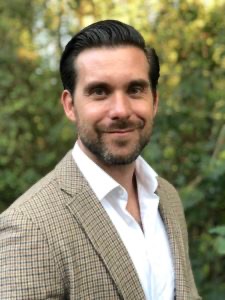- Prof. Dominik Heider (University of Münster)
- Date: February 25
- Time: 2PM (BRT)
- Local: Anfiteatro Samuel Pessoa Anexo – ICB II – USP (Av. Prof. Lineu Prestes, 1374, São Paulo)
Artificial Intelligence (AI) and machine learning (ML) are revolutionizing biomedical research by enabling advanced data-driven analyses across multiple domains, including omics sciences, clinical records, and medical imaging. This presentation explores the role of AI in biomedicine, highlighting its potential to improve diagnostics, treatment strategies, and biomarker discovery. Despite its promise, AI-based biomedical applications face several challenges, including small sample sizes, data imbalance, interpretability issues, and data protection regulations.
A key focus is on the integration of ML techniques for omics analyses, e.g., in genomics, transcriptomics, or microbiomics. The talk also covers predictive modeling in antimicrobial resistance (AMR), illustrating the impact of AI on identifying cross-resistance patterns and optimizing treatment strategies. Additionally, federated and swarm learning methodologies are presented as solutions for privacy-preserving collaborative research, allowing model training across institutions without direct data sharing. Feature selection techniques, particularly ensemble-based methods, are emphasized to enhance model stability and generalizability. The talk concludes with a discussion on the necessity of international collaboration, data-sharing limitations, and future directions for AI-driven biomedical research.
 Prof. Dominik Heider is the director of the Institute of Medical Informatics at the University of Münster since September 2024. Before, he was Full Professor at the University of Düsseldorf (2023-2024), and the University of Marburg (2016-2023), and Associate Professor at the TUM Campus Straubing (2014-2016) as well as an associate director for bioinformatics at QIAGEN (2013-2014). He studied computer science and biology (diploma 2006) and did his PhD (2008) at the University of Münster. In 2012, he did his habilitation at the University of Duisburg-Essen. Since 2023, he is also a visiting professor at the TH Chan School of Public Health at Harvard University, MA, USA.
Prof. Dominik Heider is the director of the Institute of Medical Informatics at the University of Münster since September 2024. Before, he was Full Professor at the University of Düsseldorf (2023-2024), and the University of Marburg (2016-2023), and Associate Professor at the TUM Campus Straubing (2014-2016) as well as an associate director for bioinformatics at QIAGEN (2013-2014). He studied computer science and biology (diploma 2006) and did his PhD (2008) at the University of Münster. In 2012, he did his habilitation at the University of Duisburg-Essen. Since 2023, he is also a visiting professor at the TH Chan School of Public Health at Harvard University, MA, USA.
